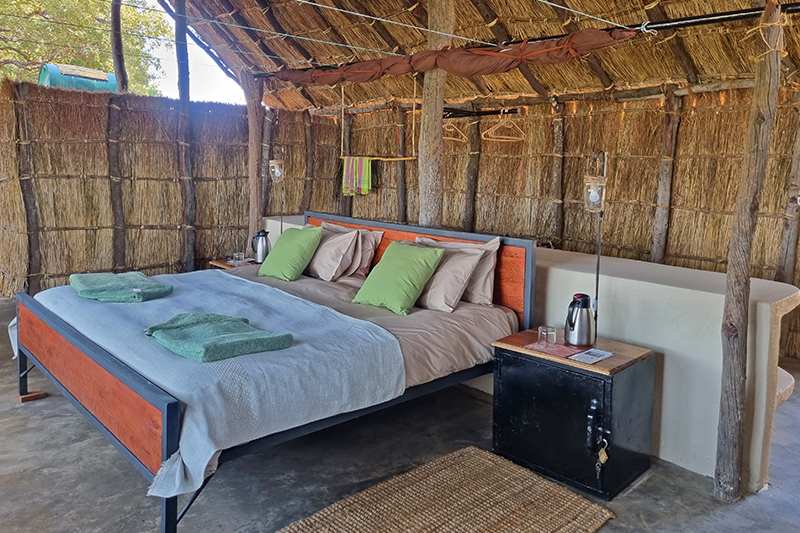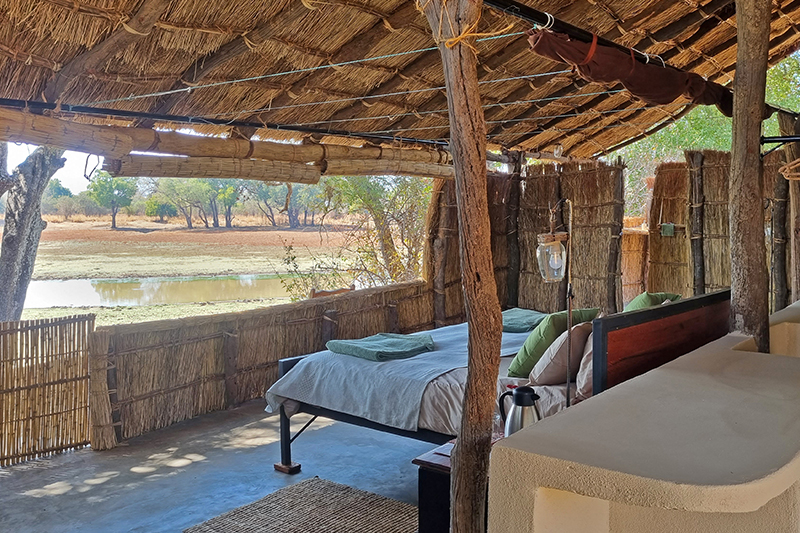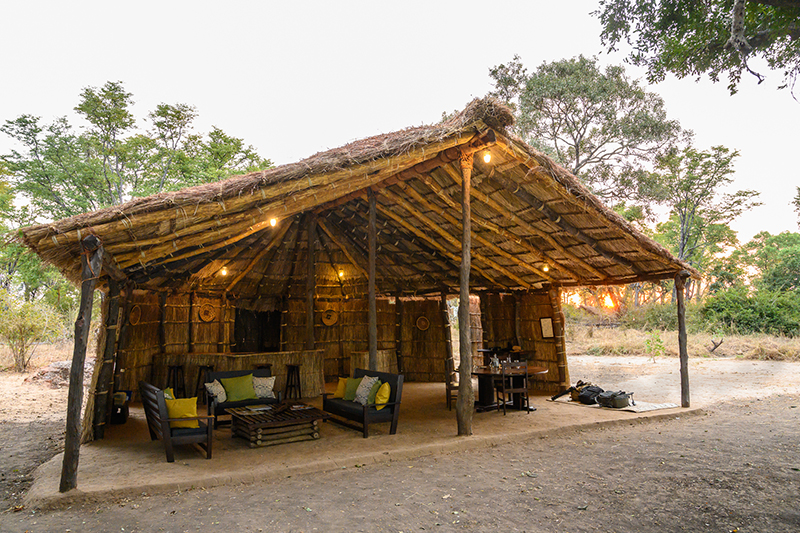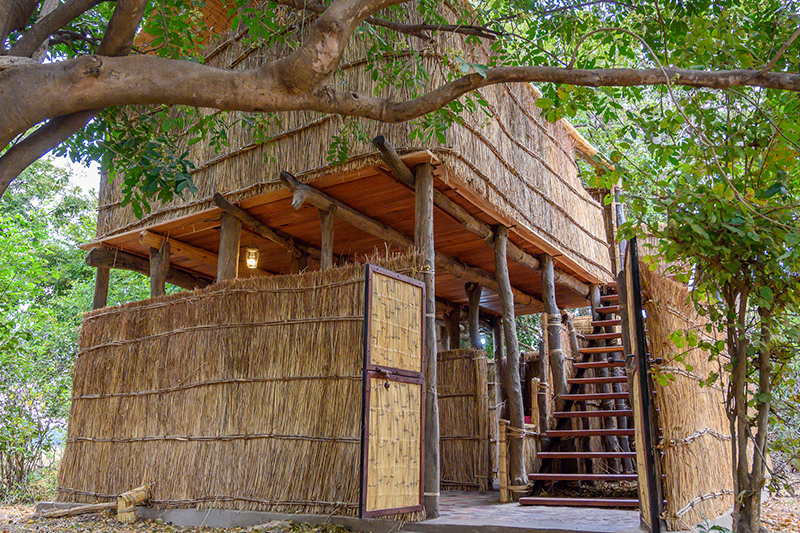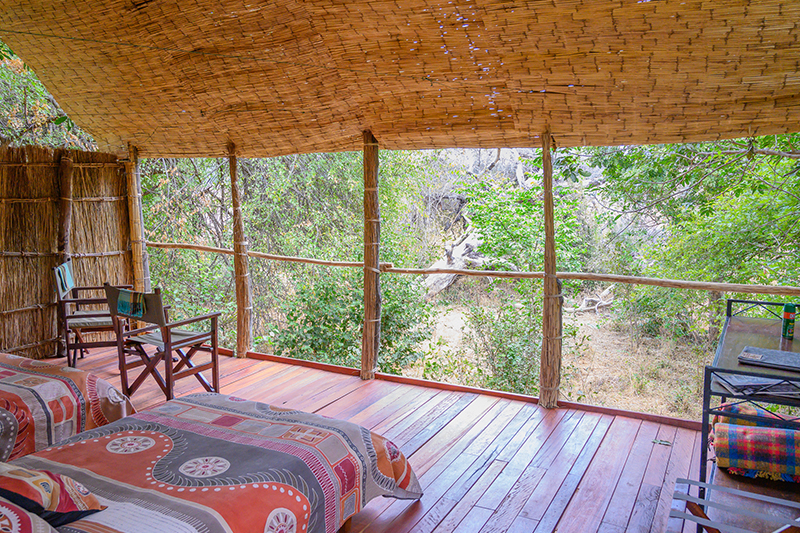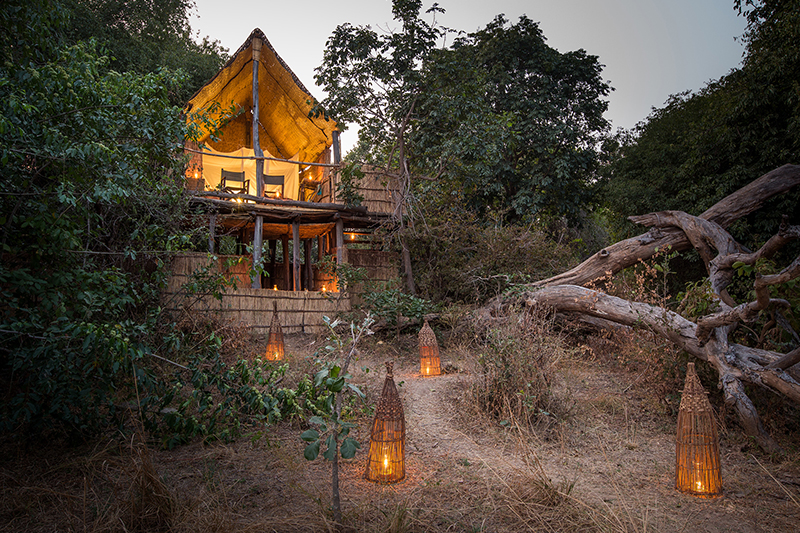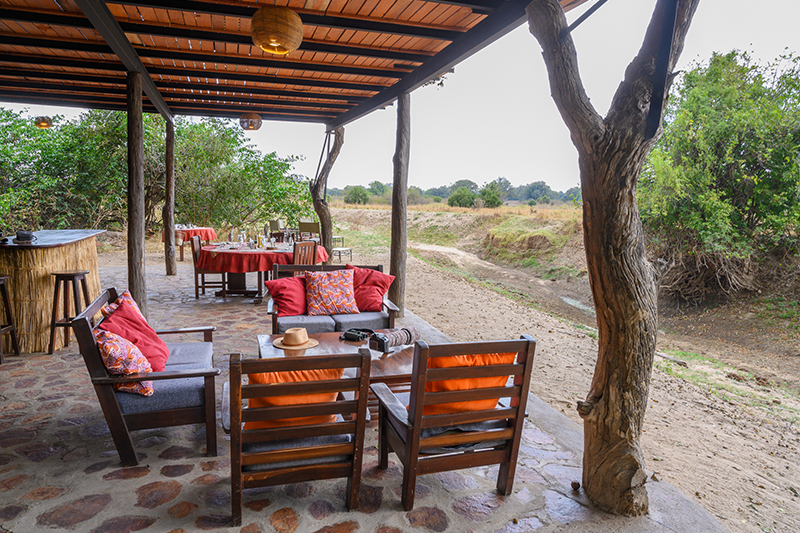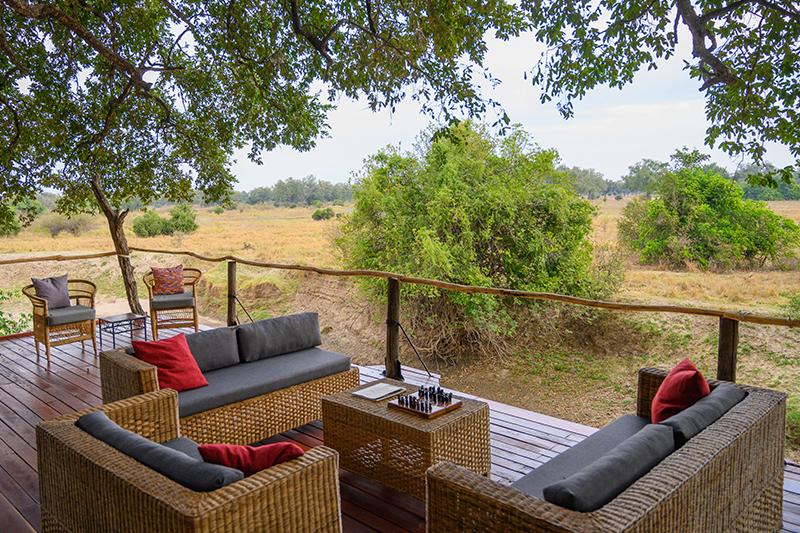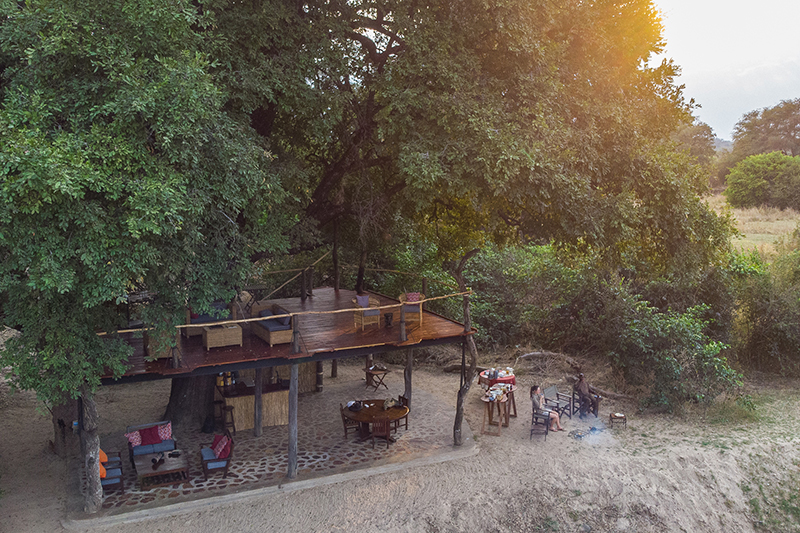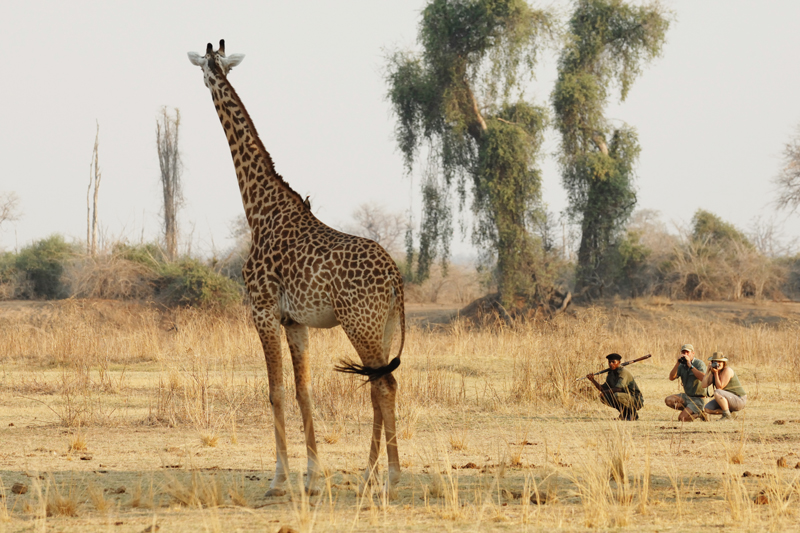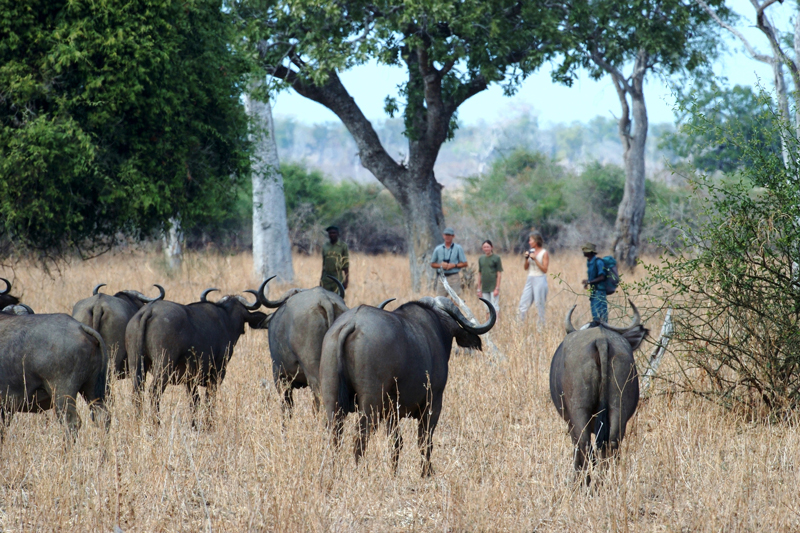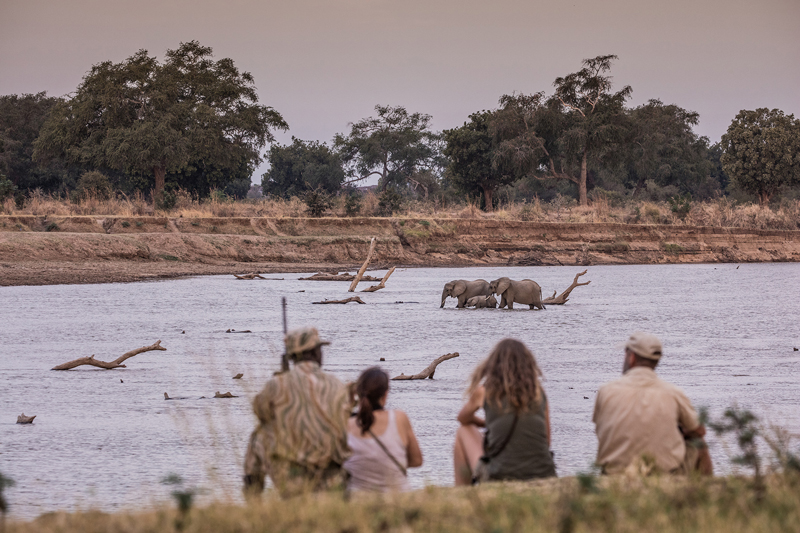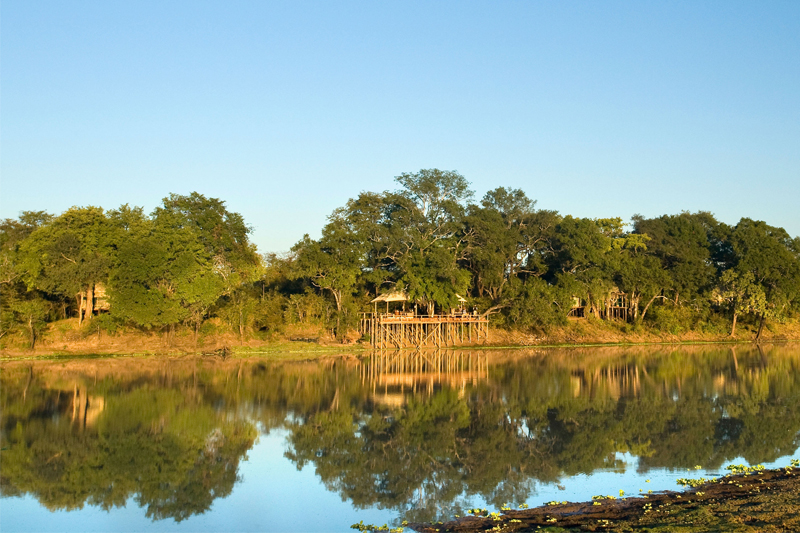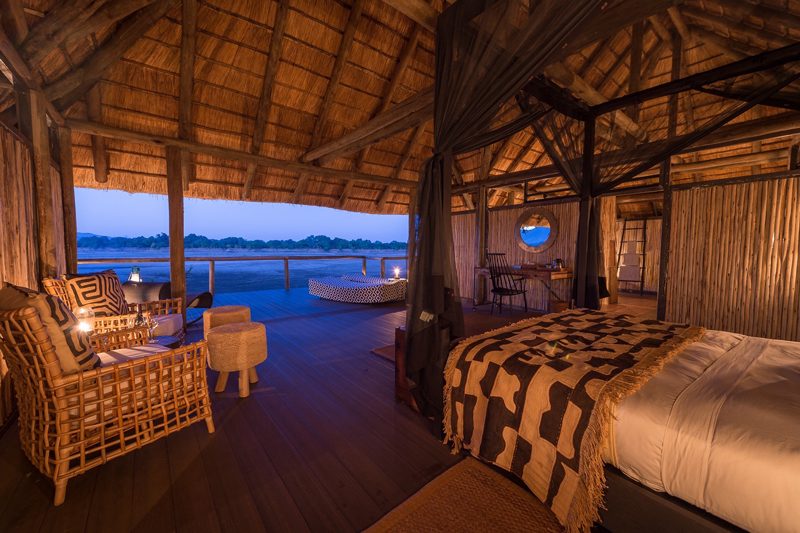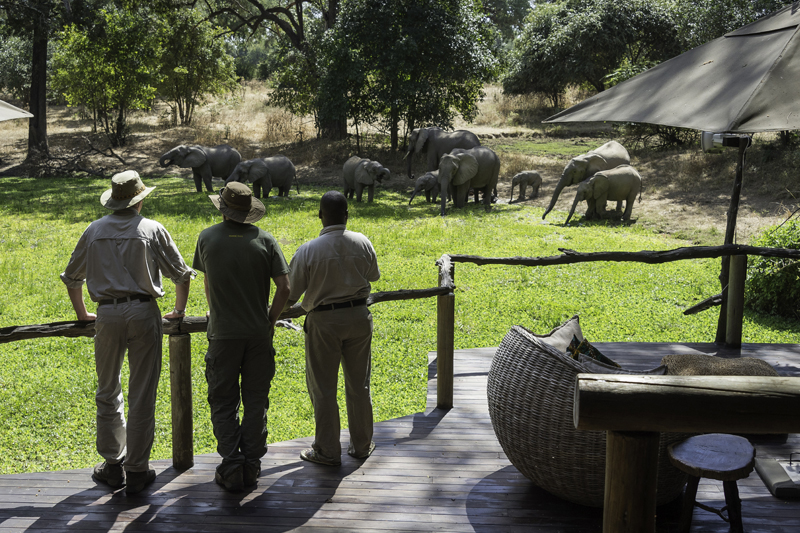Tafika Trails
Chikoko Trails is an adventurous walking safari operated through a remote northern section of the South Luangwa National Park.
We have been great fans of Remote Africa’s Tafika Trails (formerly known as Chikoko Trails) for many years, and for several reasons. Firstly, the area in which they operate is very scenic, very productive for game viewing and virtually devoid of roads. This essentially means you can explore a beautiful, pristine wilderness whilst continually coming across wildlife. A great start for a walking safari! Secondly, the camps themselves offer a good balance of comfort and adventure, with a leaning towards the adventure. With flush loos, hot showers, cold drinks and good food provided for guests, the camps certainly offer a sophisticated bush experience. However, the real magic is in the experience. Being such small camps in the heart of the wilderness there are always animals wandering through or past, and guests really have the chance to immerse themselves in nature. Thirdly, we have always liked the guides from Remote Africa who lead the trails, as they offer experience and enthusiasm in equal measure. And lastly, it always helps when a product offers good value for money, and Tafika Trails certainly offer that. All in all, a wonderful adventure for anyone looking to explore a pristine wilderness area on foot.
Rooms
Tafika Trails incorporates two bush camps, Big Lagoon and Chikoko Tree Camp, which are re-built each season from local materials. Accommodation at Big Lagoon comprises three thatch and reed chalets overlooking an extensive lagoon from the surrounding ebony forest. Each chalet is comfortably furnished with proper beds, luggage racks and easy chairs, and has open air en suite facilities including a vanity and plumbed shower (from a tank). The flush loo is under cover. There is a central dining chalet. Chikoko Tree Camp has three open-fronted chalets built about ten feet above the ground on raised platforms. Steps lead up to the bedroom and balcony which has fantastic views out across the grasslands. Under the bedroom at ground level is a spacious bathroom, including a flush loo and open air bucket shower. Both camps are rustic in style and offer a very ‘close to nature’ experience.
Central Areas
Both camps have comfortable central areas where you can relax during the heat of the day, and where meals are served. There is a small bar and lounge area and dining is pretty flexible, often undertaken outside under the stars or around the camp fire.
Facilities
Wi-Fi – No
Power for charging – Yes
Swimming pool – No
Habitat & Wildlife
The Luangwa Valley is one of Africa’s most scenic and game-rich National Parks. Forming part of the southern end of the Great Rift Valley, the wide valley floor is about 1,000ft lower than the surrounding plateau and through the centre flows the Luangwa River which is fed by dozens of sand rivers during the rainy season, causing it to become a raging torrent. It frequently alters its course from season to season, causing many ox-bow lakes to form. These lakes are very important to the ecology of the valley and account for the high carrying capacity of the park.
Elephant, although slightly smaller than their southern African savannah counterparts, are plentiful, as are buffalo (in huge herds), kudu, waterbuck, puku, impala, bushbuck and warthog. Thornicrofts giraffe (endemic to the region) are commonly seen and the Cookson’s wildebeest can be seen in the northern sector of the park. Along the river hippo can be seen in their hundreds, in the late dry season packed into ever decreasing water pools, whilst huge crocs laze on the many sand banks. However, the park is perhaps best known for its predator populations, in particular lion and leopard, the latter of which are seen regularly by day and at night. Wild dogs have made a good comeback in the park in recent years and are often sighted. Night drives can also be very productive, with nocturnal species such as civet, genet, honey badger, white-tailed mongoose, spotted hyaena and porcupine regularly seen in addition to the many superb leopard sightings.
The birdlife of the Luangwa is equally exceptional, with over half of the total Zambia species (around 700) being recorded here. Commonly sighted species include crowned crane, carmine and white-fronted bee-eaters (which nest in the banks of the river from late August onwards), Lilian’s lovebird, purple-crested turaco, paradise whydah, striped kingfisher and the impressive saddlebill storks. Pel’s fishing owl are also regularly seen.
Activities
Tafika Trails are a dedicated walking safari, usually for a minimum of two nights in duration, and catering for a maximum of six participants at any one time. Specialist walking guides from Remote Africa Safaris are knowledgeable and experienced and host all walking safaris. It is usual to spend nights in both Big Lagoon and Chikoko camps, and walk between them, however on shorter trails of two nights it is possible that you could stay in just one camp. Whilst it is possible to undertake Tafika Trails as a stand-alone safari, it is usual to combine the experience with a stay at Tafika Camp, which offers a more traditional safari experience including game drives, night drives and cultural excursions.
Seasons
Tafika Trails operate from late May through to October, though whilst June is arguably the most attractive month to visit, the walking and game viewing conditions are generally better from July onwards.
Tafika Trails are not suitable for young children (you need to be 12 years and older to walk in Zambia) and there are no family chalet options, so children must be old enough to enjoy the walking adventure and sleep in their own rustic bush chalet. However, for families with older teenagers who are active and adventurous, this safari can be an incredible family experience.
Remote Africa Safaris, owners of Tafika Trails, established the Tafika Fund which sees $5 a day for each guest’s stay go to the programmes operated by the Fund. Through donations from guests, tour operators and Remote Africa Safaris, the Fund supports government run Mkasanga School with areas such as building renovation, stationery supplies and payment of assistant teacher salaries. The Fund assists in the education of children from the local communities through scholarships and sponsorships to high school and tertiary education. The Fund has also built an outpatient clinic in the village which acts as a first aid centre for the community.
Remote Africa Safaris also donates a further $5 per bednight to either the North or South Luangwa Nationa Park conservation programmes. These organisations are involved in the de-snaring of wildlife, anti-poaching initiatives and community-wildlife conflictions in the Luangwa.
Remote Africa Safaris can also arrange for guests to bring extra luggage free of charge for donations of school supplies and football equipment.




